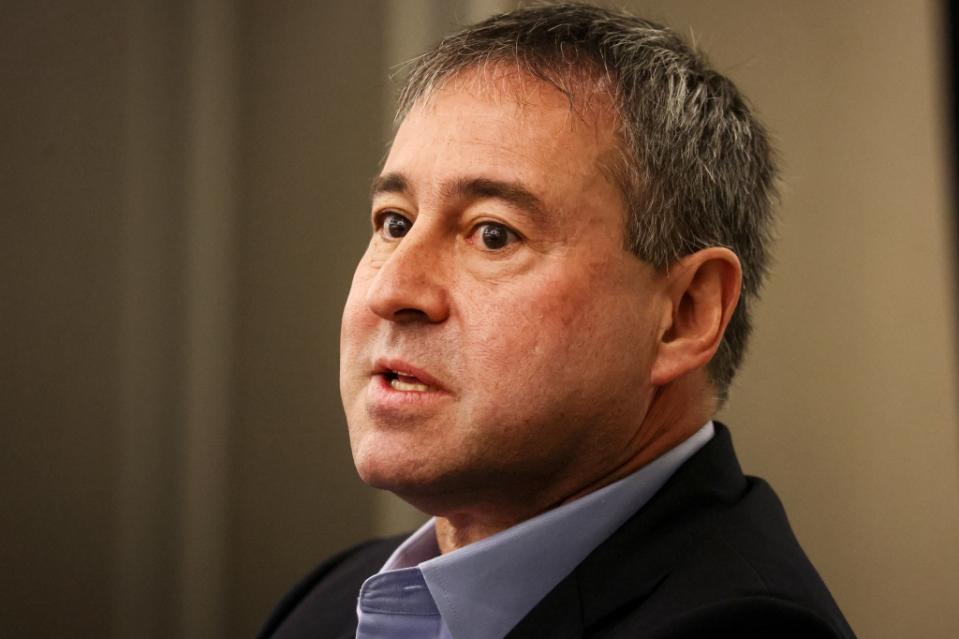From the brash but supposedly visionary CEO to the superstar trader who never seems to sleep, crypto, like other high-flying industries, is filled with hotshots.
But when millions—or billions—of dollars are on the line, a shining star can burn out as quickly as it emerged.
Here are five prominent falls from grace that shook the crypto world in 2022.
SBF
Once hailed as the kriptovaliutų „baltasis riteris“., the former FTX CEO is now dėl namų arešto at his parents house in Palo Alto, California after being released on a whopping $250 million bond following his extradition from The Bahamas.
After some time at the Wall Street trading firm Jane Street, Sam Bankman-Fried and his cofounders created the crypto trading firm Alameda Research. SBF then founded FTX, a cryptocurrency exchange that rose to become one of the world’s largest.
But SBF, known as one of the biggest advocates of effective altruism, which promotes doing the most good for the most people, perhaps was not as benevolent as he seemed. In December, Bankman-Fried was kaltinamas aštuoniais kaltinimais including securities fraud, wire fraud, and several counts of conspiracy that involve money laundering and campaign finance violations.
Ar Kwon

Brash, trash-talking CEOs aren’t uncommon in tech. But most of them also aren’t responsible for $40 billion meltdowns.
The South Korean founder of Terraform Labs, Ar Kwon, is now wanted by Interpolas and South Korean authorities. Kwon created the algorithmic stablecoin TerraUSD, which was hailed by some as an essential tool for the growth of the crypto industry.
The stablecoin kept its 1-to-1 peg with the U.S. dollar through a delicate balancing act with another Terraform Labs token, Luna. The value of Luna rose to $40 billion before what was effectively a bank run collapsed both cryptocurrencies.
Kwon was so confident—or so deluded—that he shook off any criticism of TerraUSD and Luna, saying, “I don’t debate the poor.” Although sometimes still active online—he neseniai pasirodė on crypto influencer Cobie’s livestreamed podcast Tik aukštyn—his real-life whereabouts are unknown. South Korean news outlet Yonhap reported on Dec. 12 that he may be in Serbia.
Su Zhu ir Kyle'as Daviesas
The founders of Three Arrows Capital, Su Zhu and Kyle Davies, were the whiz kid investors of the crypto world—until they weren’t.
Through a series of speculative investments made with borrowed money, the pair created one of the most successful crypto hedge funds. But after a misplaced bet on Grayscale Bitcoin Trust, and a $200 million investment in Luna, which later collapsed, the firm went belly up.
Although the crypto hedge fund claimed to have no “external investors,” its financial implosion led to billions of dollars in claims from creditors.
The crypto bigwigs were once the epitome of a wave of new money coming from the crypto industry, and they sought to prove it with the purchase of a $50 million superyacht called Much Wow, kuris had to be put up for sale again after Zhu and Davies failed to make their final payment.
Aleksas Mašinskis

The former CEO of Celsius, Alex Mashinsky helmed the cryptocurrency bank while it advertised annual yields of up to 18% for customers who opened savings accounts. It appeared too good to be true. And it was.
Celsijaus pateikė bankroto bylą in July after becoming one of the first major crypto companies to freeze customer withdrawals. Mashinsky was reportedly in charge of the company’s investment strategy and made a series of bad bets, "Reuters" teigimu, including over-the-top leveraging and putting about $125 million in the Grayscale Bitcoin Trust, which is down nearly 80% this year.
Last year, the company boasted 1 million customers and about $20 billion in assets under management. In bankruptcy filings, the company claimed that it owed customers more than $4.7 billion.
It’s unclear if Celsius customers will get back the money they invested, which for some was all of their savings. Months after the company filed for bankruptcy, Mashinsky stepped down as CEO, claiming he had “become an increasing distraction.”
Stephenas Ehrlichas

At its peak, Stephen Ehrlich’s Voyager Digital advertised double-digit yields with the help of celebrity advocates like Markas Kubas.
Ehrlich and the company ran into trouble earlier this year as crypto hedge fund Three Arrows Capital failed to pay the daugiau nei $ 665 milijonai ji buvo skolinga bendrovei.
After building up a mass of 3.5 mln. Klientų at its peak, Voyager Digital filed for bankruptcy in July.
The company almost sold its assets to FTX for apie $ 1.4 milijardą, but after the the latter imploded last month, Voyager went searching for a new buyer. It appears now that the U.S. arm of Binance will be buying Voyager’s assets for about $1 billion.
Still, Ehrlich might end up better off than most of Voyager’s customers post bankruptcy. He reportedly uždirbo milijonus selling Voyager shares during their peak in February and March 2021.
Ši istorija iš pradžių buvo rodoma Fortune.com
Daugiau iš Fortūnos:
Žmonės, kurie praleido COVID vakciną, turi didesnę eismo įvykių riziką
Elonas Muskas sako, kad Dave'o Chapelle'o gerbėjų nušvilpimas „man buvo pirmas įvykis realiame gyvenime“, o tai rodo, kad jis žino, kad kyla atsakas
Z karta ir jaunieji tūkstantmečiai atrado naują būdą įsigyti prabangias rankines ir laikrodžius – gyventi su mama ir tėčiu
Tikroji Meghan Markle nuodėmė, kurios Didžiosios Britanijos visuomenė negali atleisti, o amerikiečiai negali suprasti
Source: https://finance.yahoo.com/news/bad-crypto-even-worse-guys-131500463.html